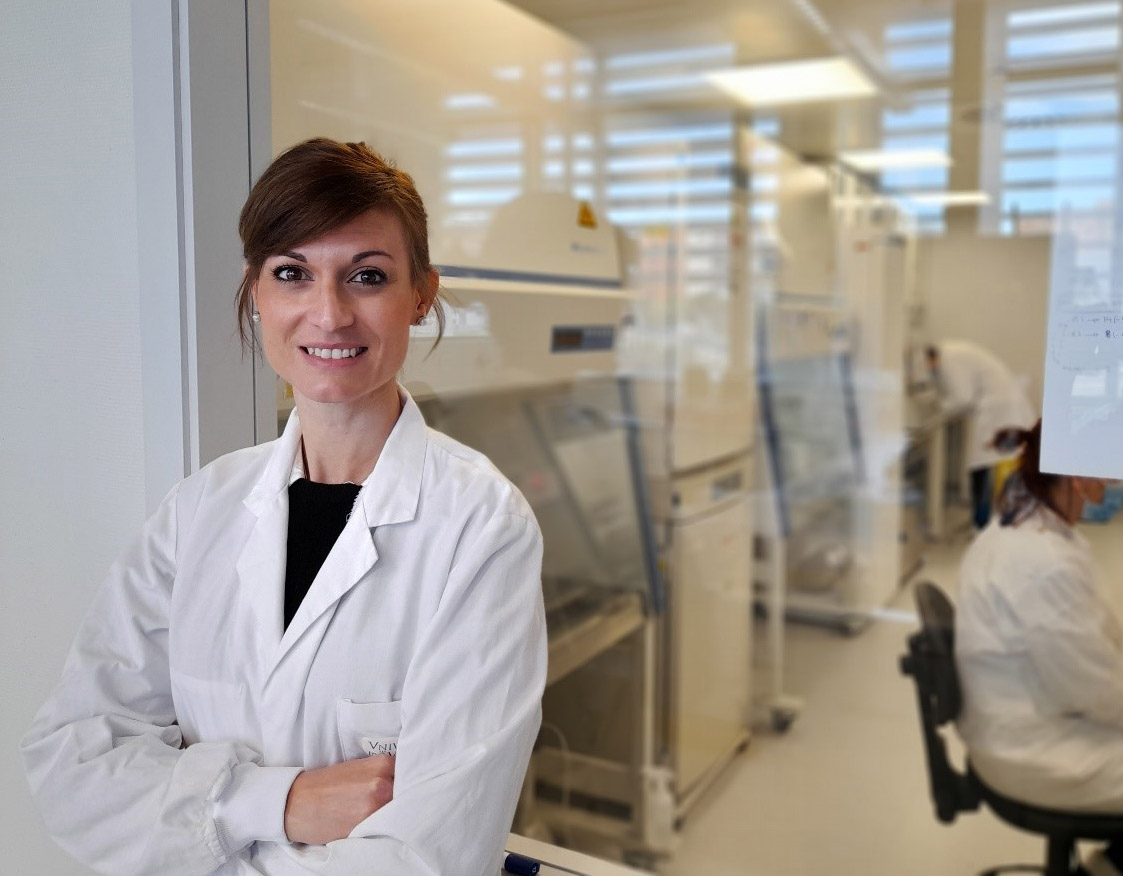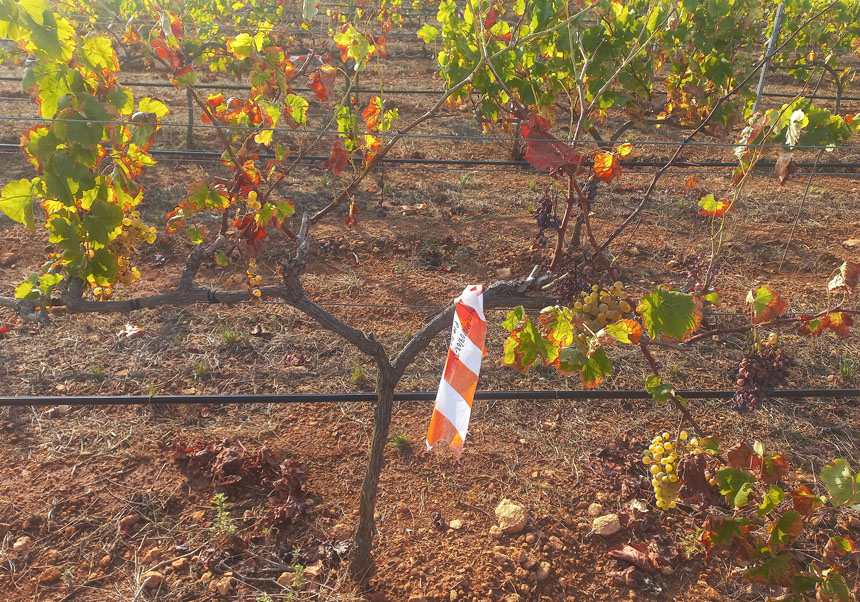Pioneering research by the University of Valencia and the CSIC uses bacteria viruses against Xylella fastidiosa in the Balearic Islands
- Scientific Culture and Innovation Unit
- September 7th, 2023

Pilar Domingo-Calap, researcher at the Institute of Integrative Systems Biology (I2SysBio), a joint centre of the University of Valencia (UV) and the Spanish National Research Council (CSIC), directs research with phages (bacterial viruses) that has started treating crop plants affected by the bacteria Xylella fastidiosa in the Balearic Islands. Developed by Evolving Therapeutics SL, a spin-off of the UV, it is the first pilot treatment with phages in agriculture in Spain, a technique that has already been used in people with cystic fibrosis.
“We implement personalised solutions based on phages, which will eliminate the target bacteria specifically, maintaining the microbiota of the organism to be treated, whether it is a plant, an animal, or even patients”, explains Pilar Domingo-Calap, scientific director of Evolving Therapeutics and leader of the Environmental and Biomedical Virology research group at I2SysBio. This company is part of AgrotecUV, an initiative of the UV Science Park that has high-tech firms in agriculture that operate through public-private collaboration.
The treatment of crop plants in Mallorca, funded by the Department of Agriculture of the Government of the Balearic Islands, has been supported by previous work by I2SysBio and the Valencian Institute of Agricultural Research (IVIA), and aims to attack Xylella fastidiosa, one of the deadliest bacteria in the Mediterranean basin and for which there is no treatment. This pest, which is already endemic in Mallorca, mainly affects almond trees, olive trees and vineyards, and is one of the main quarantine pathogenic organisms in the European Union, in the face of which farmers must eliminate affected plants.
Evolving Therapeutics SL, founded by Pilar Domingo-Calap and Marisa Domingo-Calap with the support of the Respiralia Foundation, a non-profit Balearic entity that supports people with cystic fibrosis, offers preventive, diagnostic and therapeutic solutions against bacteria in an effective and ecologically safe way. Precisely, resistant bacteria in Spain already cause three times more mortality than traffic accidents and require new control strategies. Phage therapy, increasingly known for its promising results, can also be used as biocontrol in animal and plant health.
“It is an opportunity for us to be pioneers in the field, the preliminary results make us strongly support this project. Until next year when new leaves grow on the vines again, we will not see if the treatment has worked, but we are monitoring it over time to see its effectiveness”, explains Francesc Adrover, plant health technician at the Local Department of Agriculture, Fisheries and Natural Environment.
“This study is essential to be able to move towards sustainable and biologically safe treatments”, says Marta López, head of the plant health section of the Department of Agriculture, Fisheries and Natural Environment of the Government of the Balearic Islands. “Although the results are validated in the long term, it is a step forward in the fight against bacteria with new biological, ecologically safe treatments, which will surely cause a lot of talk in the near future”, she highlighted.
This project began as a basic science study to isolate phages capable of killing Xylella and understand their potential use in plants. New phages isolated in the research group of Pilar Domingo-Calap, in collaboration with the group of Ester Marco-Noales (IVIA), were its grounds.
Photo captions:
- Vine crops treated in the Balearic Islands.




















